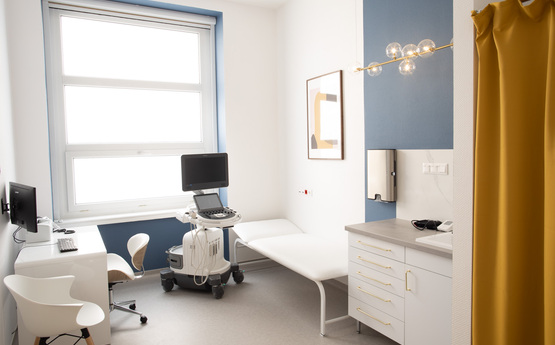

What does
Urology deal with?
The kidneys, along with the liver, are the body’s most important detoxifying organs. Their importance is well demonstrated by the fact that people are usually born with two “for safety’s sake,” and if one fails, the other can fully perform the tasks of both kidneys. These organs are extremely complex, essential not only in detoxification but also in regulating blood fluid and mineral content, as well as pH and pressure. The role of urology is to treat diseases of the kidneys and the organs that drain and store urine (ureters, bladder, urethra).

When should you visit a urologist?


How does a urological examination proceed?
Our specialist will ask you in detail about your previous known illnesses, medications, and surgeries. Then they will inquire about your current complaints, their onset, nature, and intensity. This is followed by a physical examination of the problem area (examination of testicles, prostate examination through the rectum), which may cause mild discomfort. If necessary, ultrasound examination of various organs is also part of the specialist examination. In cases of urination problems, the patient urinates into a container connected to a measuring device. This creates a urination curve that helps establish an accurate diagnosis. Blood tests (e.g., PSA) and urine tests may also be needed. After the examinations, our specialist will recommend medication or other interventions.
Additional Information
The kidney is directly connected to the outside world, so pathogens can relatively easily enter the lower urinary tract and travel upward, especially in cases of associated diseases (e.g., diabetes). Due to the close anatomical relationship between the urinary tract and reproductive organs, urology often collaborates with gynecology and andrology. The most commonly treated urological conditions are kidney stones and urinary tract infections. Women more frequently experience urinary incontinence, while men (since the urethra passes through the prostate) experience urination difficulties due to prostate enlargement.
In men, prostate cancer is one of the most common cancerous diseases, and its timely detection is crucial for successful treatment. Annual screening is recommended after age 45, even in asymptomatic cases.

Our Prices in Urology
Our Doctors in Urology




